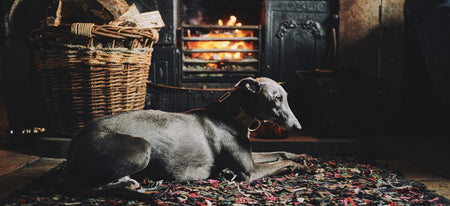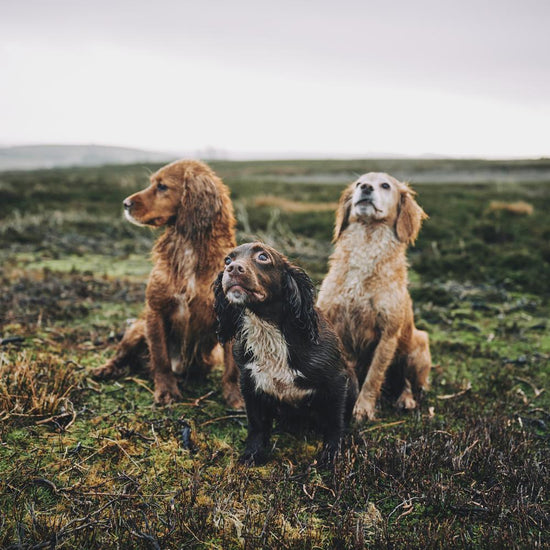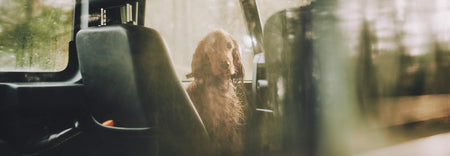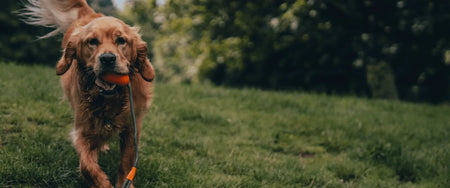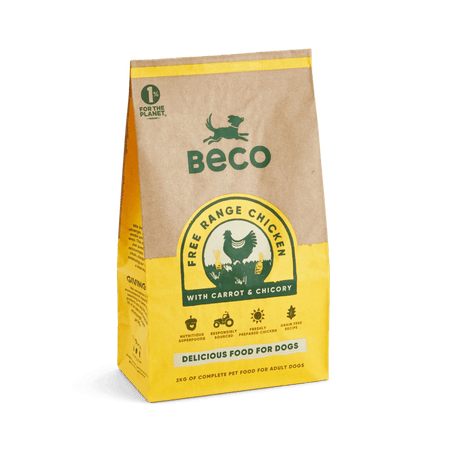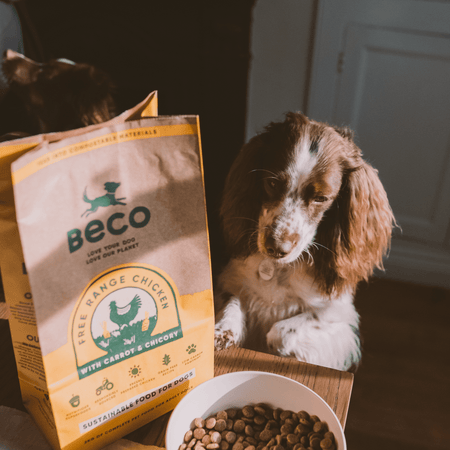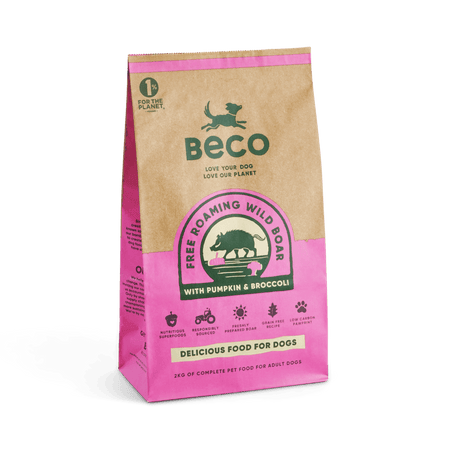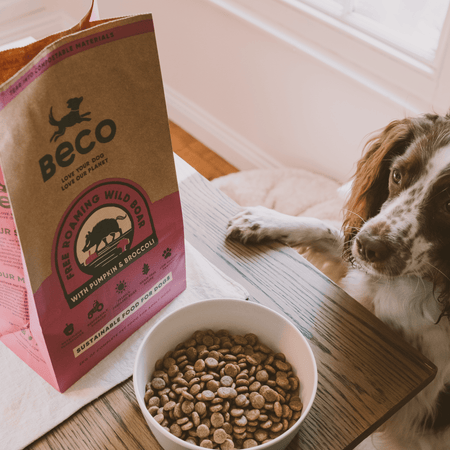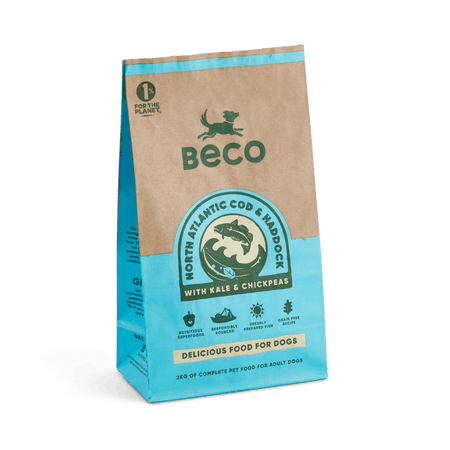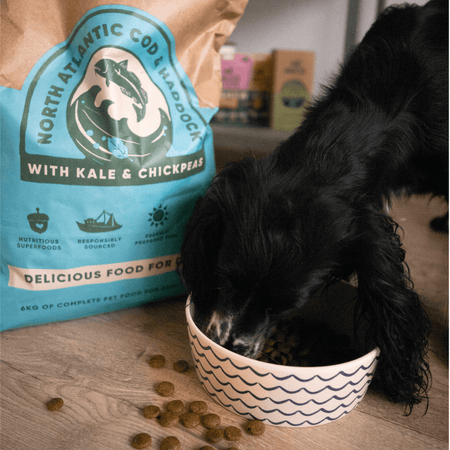Anyone who has toilet trained a new puppy or dog will know that accidents are a normal part of the process. However, if your dog has already been house trained for some time, it can be alarming if they start pooping in the house suddenly.
If your dog does start pooping in the house, it’s important to figure out why this change in bowel habits has occurred. Sometimes this will be easy, and the cause will be obvious. In other cases, more investigation will be required.
Either way, it’s important to persevere, as pinpointing whether your dog is suffering from an underlying medical problem, or a behavioural issue is really important. Knowing the cause of their pooping mishaps will directly inform their treatment plan.
Below, you’ll find some of the most obvious reasons why your dog is pooping in the house all of a sudden and some simple tips to retrain them. Just remember, if you’re worried about any sudden changes in your pup’s poops (for example, if you see blood in their stools), then it’s important to consult a vet immediately.

Reasons for Your Dog Pooping in the House Suddenly
1. Ageing | Old Dog Pooping in House
Incontinence can be a problem that occurs in dogs of any age but is especially common in older dogs.
If your pooch is elderly, your dog is likely pooping in the house due to an issue like cognitive dysfunction syndrome. Cognitive dysfunction syndrome is usually accompanied by other symptoms, such as disorientation, fear, behavioural changes and lack of appetite, although this is a degenerative disease with no cure – much like Alzheimer’s – it can be managed with help from your vet.
If you have an older dog that’s started pooping in the house all of a sudden, it could be a sign of an underlying health issue, such as a gastrointestinal problem or bowel disease. As dogs get older, their digestive systems are less efficient which can make it hard for them to control their bowel movements. If you start to notice a change in bowel habits, as well as sickness, or a change to eating habits, consult with your vet.
2. Medical Issues
Aside from old age, there are several common causes of a dog suddenly pooping inside. These include:
Intestinal parasites
Bacterial infections
Viral diseases
Stomach flu
Poor diet
If you’re worried about the above and want to check the status of your dog’s poop, why not try our healthy poop chart guide. These conditions are serious and shouldn’t go untreated by a vet. If left unchecked, they may cause long-term health conditions in your dog.
3. Separation Anxiety
If your dog poops in the house when alone then it may be suffering from separation anxiety. Separation anxiety, meaning feelings of worry and upset, is triggered when a dog is separated from their owners and caregivers.
As well as defecation, a dog suffering with separation anxiety may bark, howl, chew, dig or try to escape. In reacting to these feelings of distress, they can cause damage to themselves and your house.
You can test whether this is the cause of your dog pooping inside by leaving your dog in the house for a short while and seeing if an accident occurs. A visit to a behavioural specialist can help you manage separation anxiety in your dog.
4. General Stress

Along with separation anxiety, general stress can also lead a dog to start pooping in the house. Like with people, a dog’s digestive system is sensitive to big, sudden changes. Life event triggers, for example, like moving house can cause your dog to become stressed.
Welcoming a new family member into the household (either a human or animal), can also cause a lot of anxiety for a dog. In turn, this can disrupt their bowels. Even loud noises from home improvements can make dogs anxious, causing them to become startled and poop in the house.
To manage sudden pooping due to stress, try to remove stressors where possible. And, when it comes to making changes to your dog’s routine, try to ease them in slowly, making any changes very gradually.
Dietary Changes | Why Your Dog is Pooping in the House
A change in bowel habits is a common side effect of changing your dog’s diet. You only have to read about kibble vs raw dog food to know how dramatically these two different diets can impact a dog’s poop.
However, if your dog is pooping in the house as a result of dietary changes, it can be a sign that your dog is reacting badly to new foods. For pet parents worried this might be the case, the first thing to do is to check that your dog isn’t consuming foods that are toxic for canines. Some human food just isn’t suitable for our pups!
Second, make sure that the food you’re feeding your dog is good quality and not full of poor-quality, artificial fillers. Instead, focus on feeding your dog healthy, nutritious food full of vegetables and digestible proteins.
At the same time, it’s important to remember that dogs are as unique as humans: some just have more temperamental digestive systems than others. For these types of dogs, a grain-free dog food designed for sensitive stomachs can be a great choice.
Finally, make any transition to a new diet slowly, ideally over the period of several weeks. This should allow their stomach to more easily adjust to the new food.
Time of Day | Why is My Dog Suddenly Pooping in the House at Night?
Dogs are creatures of habit, and any changes to their routine can lead to unexpected behaviours, which may be a reason for if your dog has started pooping in the house at night time. The changes could be related to a disruption to your dog’s internal clock. With a natural circadian rhythm, dogs' internal clocks are tuned to specific times of day for certain activities, such as eating, sleeping and going to the toilet.
If you’ve made recent changes to your dog’s schedule; for example, a different feeding time or changes to your work times, and you’ve noticed since then that your dog has started having accidents at night, it could signal a change to their internal clock. Another reason that there might be a change in toilet behaviour is that your dog has become anxious or stressed, or that you have an older dog, both of which we’ve touched on earlier in the piece.
My Puppy Keeps Pooping in the House – Why?
Being a puppy owner is not without its frustrations, particularly when it comes to dealing with toilet-related accidents, even when you believe they are fully toilet-trained.
Improper Training
One of the most common reasons why puppies poop in the house is that they haven’t been properly trained. It is important to establish a consistent routine for your puppy and take them outside to go to the toilet frequently. When you take them outside, issue a specific spot and command word to encourage them to go to the toilet, and then praise them when they do go to reinforce that this is good behaviour.
Puppies require constant supervision, especially when they are still in the process of toilet training. If you aren’t watching your puppy closely, they can sneak off and use an area of the house that they aren’t supposed to as a toilet.
Medical Problem(s)
Although less common, a puppy that was previously toilet trained that’s now suddenly having accidents, may have an underlying medical issue. Urinary tract infections (UTIs), gastrointestinal problems, and some other conditions can cause a puppy to have accidents in the house. If you suspect that your dog might be suffering with an illness, consult your vet who will be able to advise.
How to Stop a Dog from Pooping in the House?
If you’re concerned about changes in your dog’s pooping behaviour, we would always recommend seeking the advice of a vet, however, you may be able to stop your dog from pooping in the house by following the steps below:
Clean any mess with an enzymatic cleaner instead of the usual disinfectant. Normal household cleaning products can actually encourage dogs to go to the loo in the same spot again.
Use synthetic pheromones as they can have a relaxing effect for stressed dogs, although they may not work on all dogs.
Learn the signs that your dog needs the loo, such as pacing, panting, whining, barking or general restlessness. Other signs can include sniffing the ground, a lower body posture, squatting or going to the door.
Establish a routine that will help to retrain your dog. For example, take them to the toilet when they wake up, after eating and drinking, after a period of activity, and before bedtime.
Reinforce good behaviour with praise or a treat, although be sure to give them the treat immediately after and before they come inside so that they associate the treat with going outside rather than going to the toilet in general.
Let’s Sum it Up!
A change in toilet habits in a dog, be it old or young, can be frustrating, especially if you don’t know the cause. Whilst there can be several reasons for your dog pooping in the house suddenly, from stress to a medical condition, it’s important to pinpoint the exact cause so that you can work to treat the issue and seek advice from a vet if necessary.
There are plenty of ways to resolve the issue that don’t always require medical attention, for example, you may want to consider giving a treat as a reward or using synthetic pheromones to create a calm environment. Don’t forget, you can pick up tasty treats and essential poop bags from our online shop.
